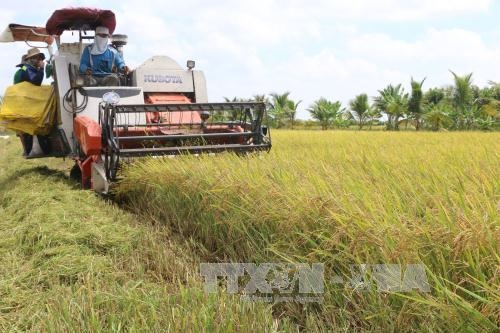China is one of the biggest rice producers and rice import markets in the world, according to Phan Loi, Deputy Director of the provincial Department of Industry and Trade.
An Giang exports over 400,000 tonnes of rice annually, he said, adding that the province is leading the country in building large-scale paddy fields and material areas.
    |
 |
|
An Giang province province is leading the country in building large-scale paddy fields and material areas. (Photo for illustration) |
It is able to meet the import criteria of countries, including China, he said.
With the assistance of the Ministry of Industry and Trade, the opportunity for An Giang rice to penetrate into the Chinese market is absolutely feasible.
The locality has big ambitions to export more rice to China and aims to ship more products besides rice to the market.
Liu Ying, Vice Chairman of Shanxi province’s food association and head of the Chinese business delegation, expressed high regard for the quality and price of rice in the Mekong Delta.
He advised Vietnamese exporters to obey China’s regulations on quarantines and design, and participate more in brand promotion as China has limited imports through unofficial channels while imposing stricter requirements for imports.
China’s modern population is increasingly busy, with little time to travel to markets to buy rice. Vietnamese businesses should pay attention to the production of suitably weighted rice bags for sale online to serve this segment, he recommended.
Tran Quoc Toan, deputy head of the Department of Foreign Trade under the Ministry of Industry and Trade, said businesses participating in the conference are potential customers from the Shanxi food association.
These firms have been allowed by the Chinese Government to import 180,000 tonnes of rice, accounting for about 10 percent of Vietnam’s total rice exports to China.
The event also creates an opportunity for Chinese rice importers to study Vietnam’s rice production development plans and orientations to seek cooperation contracts with Vietnamese partners.
On this occasion, the An Giang Department of Industry and Trade and the Shanxi food association signed a memorandum of understanding (MoU) on bilateral trade cooperation.
Two local businesses inked five MoUs on trade cooperation with Chinese firms.
Source: VNA